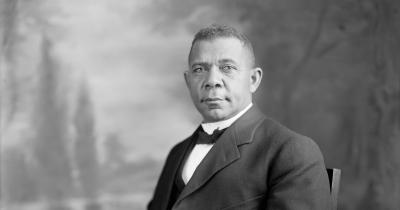
Black History Month: Standing on the Shoulders of Giants
I stand on the shoulders of giants – giants who were not “slaves” but who were enslaved.

I grew up in a military family, and we lived in predominantly white cities. I spent most of my formative years in Lancaster, California. Lancaster was a true juxtaposition: it was a city in southern California, which was a region widely hailed for its progressive values. At the same time, Lancaster was more of a big town than a city, with a majority white population that held deep conservative beliefs.
It was in this city/town where I attended my last year of elementary school. I was one of only two Black students in the entire sixth grade. In junior high and high school there were thankfully a few more Black students, but not many. In all honesty, I cannot remember a day when I wasn’t reminded in both overt and covert fashion that I was “different.” That my very being was somehow offensive. That my nose was too broad, my lips too thick, my hips too wide, and my skin too dark. That everything about me needed to be muted or qualified. “You are so articulate...for a Black person.” “You are actually pretty…for a dark-skinned Black girl.”
At this time in my youth, I was exposed to very little about Black history beyond the “I have a dream” basics, and how its essence would later influence my movement through the world. This was before the Huxtables existed on television…before “A Different World” showed us what Black brilliance and solidarity looked like on a historically Black college campus…and decades before Barack Hussein Obama boldly declared “yes, we can!” With a single, precious exception in the fourth grade (bless you, Mrs. Norma Parker!), I went through my entire elementary, middle school, and high school education never seeing myself reflected in my educators.
It would be through this lens that in February 1977, when Black History Month took on more resonance and greater personal significance. Why 1977? Because on January 23, 1977, the historic, meteoric television series Roots aired on television. It would be through this game-changing television series that the basic narrative I held about the industry and criminality of slavery was forever transformed. Even at such a young age, bearing witness to Roots elevated my understanding of how I heard the “lessons” on slavery that were taught in school for Black History Month that year – and every year after. It also awakened my consciousness, causing me to begin questioning what was being taught. I became clear that there was more – much more – than what was being shared.
For me, Black History Month serves as a loving, humbling reminder that I stand on the shoulders of giants – giants who were not “slaves” but who were enslaved. Giants who endured more and strived for more in their beautiful minds, even while their bodies were bound in chains. Giants who embody what it means to be resilient; a resilience that paved the way for many shining examples of Black brilliance. The Sojourner Truths and Harriet Tubmans. The Frederick Douglasses and Booker T. Washingtons. Giants who, in numerous ways creative, cleaver and strategic – even in the face of severe brutality and terror -- began to emancipate themselves long before President Lincoln “freed them.”
I stand on the shoulders of giants.
About the Series
Since 1976, the United States has designated February as Black History Month to honor the often overlooked achievements of black Americans throughout the country’s history. Demos is honoring Black History Month by highlighting reflections from some of our staff. We welcome you to join the conversation by sharing your thoughts with us on social media using #blackhistorymonth.
